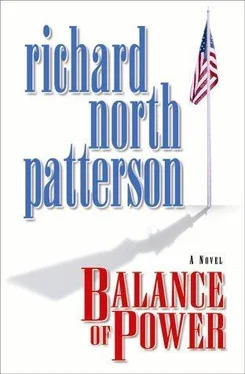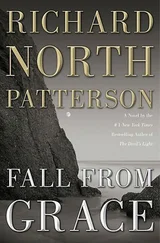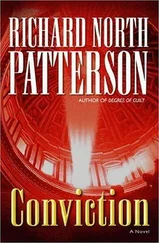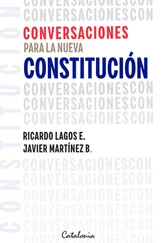Richard Patterson - Balance of Power
Здесь есть возможность читать онлайн «Richard Patterson - Balance of Power» весь текст электронной книги совершенно бесплатно (целиком полную версию без сокращений). В некоторых случаях можно слушать аудио, скачать через торрент в формате fb2 и присутствует краткое содержание. Жанр: Старинная литература, на английском языке. Описание произведения, (предисловие) а так же отзывы посетителей доступны на портале библиотеки ЛибКат.
- Название:Balance of Power
- Автор:
- Жанр:
- Год:неизвестен
- ISBN:нет данных
- Рейтинг книги:5 / 5. Голосов: 1
-
Избранное:Добавить в избранное
- Отзывы:
-
Ваша оценка:
- 100
- 1
- 2
- 3
- 4
- 5
Balance of Power: краткое содержание, описание и аннотация
Предлагаем к чтению аннотацию, описание, краткое содержание или предисловие (зависит от того, что написал сам автор книги «Balance of Power»). Если вы не нашли необходимую информацию о книге — напишите в комментариях, мы постараемся отыскать её.
Balance of Power — читать онлайн бесплатно полную книгу (весь текст) целиком
Ниже представлен текст книги, разбитый по страницам. Система сохранения места последней прочитанной страницы, позволяет с удобством читать онлайн бесплатно книгу «Balance of Power», без необходимости каждый раз заново искать на чём Вы остановились. Поставьте закладку, и сможете в любой момент перейти на страницу, на которой закончили чтение.
Интервал:
Закладка:
"What was Lexington's side of the deal?"
"Though I couldn't admit that to the President, he was asking for a lot of what I thought we should do anyhow. Phase out the P-2 and the Eagle's Claw. Require background checks at gun shows." Briefly, Callister grimaced. "He also wanted us to retrofit our weapons to accommodate only magazines with a maximum of ten rounds."
This tacit reference to the murder of Marie Costello prompted Nolan to glance at Callister. "Did the President propose anything else?" Sarah asked.
"Not directly. But he acknowledged that we'd need money to offset the phaseout of the P-2, and suggested that it was possible to obtain a federal research grant from the Justice Department to help us develop smart guns—guns designed to fire only in response to the 'fingerprint' of the actual owner."
"What was your reaction?"
Callister ran a hand through the grey stubble of his crew cut. "That it would be hard to reach agreement without support from other gun companies, but that it was still worth trying." He looked briefly at Harrison Fancher. "I thought if we could agree on the outlines of a deal, in private, I could try to bring in some of the other manufacturers. So I told the President I'd take it to our board of directors."
Gazing at the pen she twisted in her fingers, Sarah pondered her next question. "Before you went to the board, did you discuss President Kilcannon's proposal with anyone at Lexington?"
"I didn't want the negotiations leaking. But I spoke with Ray Stipe, our general counsel." Pausing, Callister added in a neutral voice, "Also with Mike Reiner."
"George," Nolan interjected, "were your discussions with Mr. Stipe for the purpose of obtaining legal advice?"
"They were."
"Then they're covered by the attorney-client privilege and I instruct you not to disclose them."
Callister nodded, then turned back to Sarah. "Mr. Stipe aside," she inquired, "why did you consult with Mr. Reiner?"
"He was our VP of marketing. Much of the implementation of our agreement would have been up to him."
"Did Reiner express a view of the President's proposal?"
"Yes. He was vehemently opposed."
"Oh what grounds?"
"That the President was asking us to be the canary in the mine shaft." Callister's tone became cooler. "Reiner had helped develop the P-2 and the Eagle's Claw, and thought they were essential to fighting off our competition. He said accepting Kilcannon's plan was tantamount to suicide."
"Were Mr. Reiner's objections the reason that Lexington did not reach agreement with the President?"
"They were not," Callister answered firmly. "In my view the P-2 and Eagle's Claw were a dead end, and my job was to wean us from trying to outdo the other guys in making deadly weapons and lethal bullets. So I told Reiner I was going to the board."
"And did you?"
"Yes. I didn't want to put anything in writing. So I verbally outlined the President's proposal and asked them to consider it."
"What was the board's reaction?"
"There was a lot of uncertainty and concern. But they authorized me to meet further with the President."
"Did that happen?"
Callister seemed to draw a long, slow breath. "No."
"And why not?"
"Because I received a phone call from Charles Dane."
"Concerning what?"
"He said that he'd heard about my negotiations with the President, and requested a private meeting."
At once, both Nolan and Fancher seemed hyperalert, poised to intervene. Pausing, Sarah sought to frame a question which would avoid an instruction not to answer. "How did Mr. Dane learn about the negotiations?"
"I can't imagine it was Stipe." Callister summoned a tight smile, more to himself than for Sarah. "That leaves Reiner, or a member of our board."
"Did you meet with Mr. Dane?"
"Yes. At the offices of the SSA."
At the corner of her eye, Sarah watched Nolan. "Was anyone else there?"
"No." Callister's voice was flat, his features immobile. "Dane said he wanted to work things out alone."
Tensing, both Nolan and Fancher eyed the witness. Sarah glanced at one lawyer, then the other, and calmly asked, "What did Dane say to you at the meeting?"
"Same objection," Fancher cut in, turning to Nolan and the witness. "The question seeks to probe confidential discussion of political and legislative strategy protected by the First Amendment. The SSA requests that Mr. Callister not answer."
"So directed," Nolan told his client.
Sarah kept watching Callister. "Would you classify your meeting with Mr. Dane as a 'confidential discussion of political and legislative strategy'?"
Callister folded his hands, gazing silently at the table. At length he looked up at Sarah with a new aura of equanimity. "Not in the main."
Sarah smiled faintly. "Then when you answer my questions, please leave out the 'confidential discussions of political and legislative strategy.' "
"Objection," Nolan snapped with rising annoyance. "It's impossible to segregate what may be a general discussion from the legislative and political discussions which are intertwined with it. I direct the witness not to answer any questions about his private discussions with Mr. Dane."
Sarah turned to the witness. "Do you think you can separate 'legislative and political discussions' from whatever else you and Dane talked about?"
"I believe I can, yes."
Nolan grasped Callister's wrist. "As counsel for Lexington Arms," he said in a peremptory tone, "I am directing you not to answer Ms. Dash's questions, or to attempt to distinguish what is confidential from what is not."
Callister stared at Nolan's hand. "You've given me your advice, John. I get to decide whether or not to take it."
Removing his hand, Nolan turned to Sarah. "I request a break to consult with my client."
Sarah forced herself to remain low key. "Mr. Callister?"
"You can take a break," Callister told Nolan. "I'm fine."
In a tone of alarm, Fancher interjected, "I protest the continuation of the deposition without time to discuss with Mr. Callister the implications of your questions for the First Amendment rights of Lexington and the SSA."
Shrugging, Callister turned to Sarah. "Go ahead, Ms. Dash."
Ignoring Fancher, Sarah asked, "During that meeting, Mr. Callister, what did Mr. Dane say to you?"
"Several things," Callister answered in a calm, incisive voice. "That anyone who dealt with President Kilcannon was selling out the Second Amendment. That if Lexington made this deal he would use the SSA's newsletter, the Internet, and grassroots organizations to urge every American gun owner to boycott all our products and every gun dealer to bar us from their stores. That the SSA magazine would refuse to run our advertisements, and that other gun publications would follow suit.
"With respect to private lawsuits like this one," Callister went on, "our defense is financed by the Heritage Fund, which is principally funded, and therefore controlled, by the SSA itself. Dane warned me they wouldn't fund the defense for any company who cut a deal with Kilcannon." Turning to Fancher, Callister said evenly, "At the end of his summary, Mr. Fancher, your client promised me that settling with the President would lead to the destruction of Lexington Arms. I didn't take that to be a 'First Amendment discussion of political and legislative strategy.' "
Sarah felt as stunned as John Nolan and Fancher. Callister's tone suggested a man who was finally and inexorably fed up; that his last response delivered the SSA to the edge of an antitrust violation seemed to concern him not at all. "In connection with his threats against Lexington," Sarah managed to inquire, "did Mr. Dane mention your fellow manufacturers?"
Callister turned back to her. "He asked if I remembered Martin Bresler. Then he wondered aloud if I didn't think the others would be happy to carve up the market share of someone who'd just sold them out." Briefly, Callister's voice betrayed his bitterness. "But just to be sure I didn't strike a deal, someone leaked the negotiations to the W ashington Post.
Читать дальшеИнтервал:
Закладка:
Похожие книги на «Balance of Power»
Представляем Вашему вниманию похожие книги на «Balance of Power» списком для выбора. Мы отобрали схожую по названию и смыслу литературу в надежде предоставить читателям больше вариантов отыскать новые, интересные, ещё непрочитанные произведения.
Обсуждение, отзывы о книге «Balance of Power» и просто собственные мнения читателей. Оставьте ваши комментарии, напишите, что Вы думаете о произведении, его смысле или главных героях. Укажите что конкретно понравилось, а что нет, и почему Вы так считаете.












